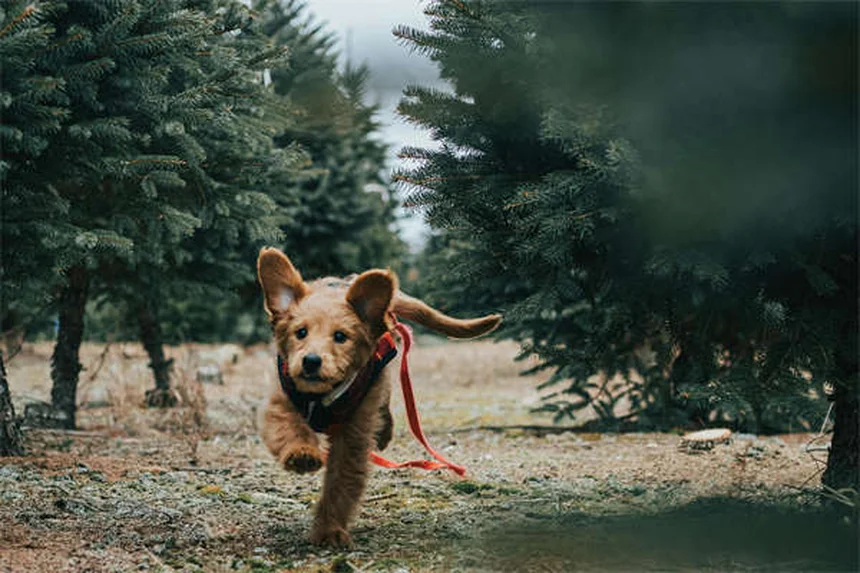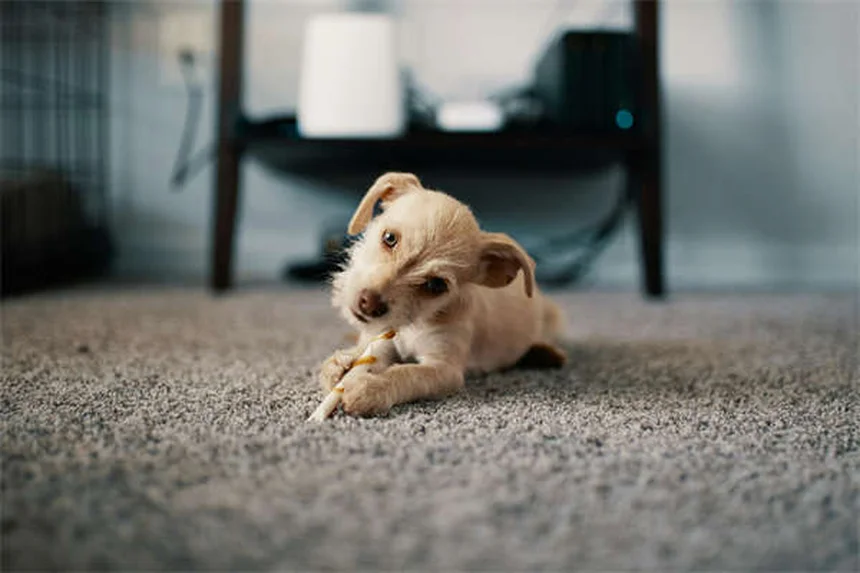Do kittens lose their baby teeth? Absolutely! Just like human kids, kittens go through a teething process where they lose their 26 baby teeth between 4-7 months to make room for 30 permanent adult teeth. Here's the deal: if you've got a kitten, you'll likely never even notice when those tiny teeth fall out because they usually swallow them during meals - completely normal and nothing to worry about! But if you have an adult cat losing teeth, that's a red flag requiring immediate vet attention. I'll walk you through exactly what to expect with your feline's dental development, from those first needle-sharp kitten teeth to maintaining a healthy adult mouth.
E.g. :20 Best Hunting Dog Breeds for Your Next Outdoor Adventure
Advertisement
- 1、Kitten Teeth 101: The Complete Guide to Your Tiny Tiger's Chompers
- 2、When Tooth Trouble Strikes: What Every Cat Parent Should Know
- 3、Dental Disease: The Silent Threat to Your Cat's Smile
- 4、Prevention Is Better Than Cure: Protecting Your Cat's Dental Health
- 5、FAQ: Your Top Cat Dental Questions Answered
- 6、The Bottom Line on Cat Dental Health
- 7、The Surprising Connection Between Kitten Teeth and Hunting Skills
- 8、The Secret Life of Kitten Teeth: What Happens When They Fall Out
- 9、The Hidden Dangers of Ignoring Kitten Dental Care
- 10、Beyond Brushing: Creative Ways to Care for Kitten Teeth
- 11、The Kitten Dental Timeline: What to Expect When
- 12、FAQs
Kitten Teeth 101: The Complete Guide to Your Tiny Tiger's Chompers
When Do Kittens Get Their Baby Teeth?
Picture this: your adorable little furball is just 2 weeks old, and suddenly - pop! - tiny teeth start appearing! Kitten teeth (we vets call them deciduous teeth) begin erupting at 2-4 weeks, with the full set of 26 teeth complete by 6 weeks. That's right - your kitten will have more teeth than a 5-year-old human!
Here's a fun fact that might surprise you: kittens are actually born toothless! Those sharp little needles we all know and love (sometimes painfully) don't appear until they're ready to start weaning. The incisors come first, followed by canines, and finally premolars. No molars yet - those come with their adult teeth!
The Great Tooth Swap: When Kittens Lose Baby Teeth
Around 4 months, you might notice something strange - tiny teeth disappearing! Between 4-7 months, kittens undergo what we call "tooth exfoliation" (fancy term for losing baby teeth). You'll rarely see these teeth because kittens usually swallow them during meals. Completely normal and nothing to worry about!
Ever wonder why kitten teeth are so sharp? Nature designed them that way! Their needle-like shape helps them transition from mother's milk to solid food. Here's a comparison of kitten vs. adult cat teeth:
| Tooth Type | Baby Teeth Count | Adult Teeth Count | Fun Fact |
|---|---|---|---|
| Incisors | 12 | 12 | Used for grooming and nibbling |
| Canines | 4 | 4 | Nature's perfect mouse-catching tools |
| Premolars | 10 | 10 | The chewing champions |
| Molars | 0 | 4 | Only adults get these grinding experts |
When Tooth Trouble Strikes: What Every Cat Parent Should Know
 Photos provided by pixabay
Photos provided by pixabay
The Case of the Stubborn Baby Teeth
Did you know some kittens hold onto their baby teeth like a toddler clutching a favorite toy? We call this retained deciduous teeth, and it's the most common dental issue in young cats. If baby teeth don't fall out when adult teeth come in, it can cause serious problems:
- Crowded or misaligned teeth
- Increased tartar buildup
- Painful abscesses
- Difficulty eating
The good news? Your vet can easily remove these stubborn teeth, usually during spay/neuter surgery. Early intervention prevents long-term problems!
Adult Cat Teeth: Built to Last (But Not Indestructible)
Here's something that might shock you: healthy adult cats shouldn't lose any teeth! Unlike humans who expect to lose teeth with age, cats' teeth are designed to last a lifetime. If you find a tooth from your adult cat, it's like finding a red flag - time to visit the vet!
Why is tooth loss in adult cats such a big deal? Let me break it down:
1. Dental disease affects 70% of cats by age 3
2. Untreated issues can lead to painful infections
3. Missing teeth make eating difficult
4. Bacteria from mouth infections can spread to other organs
Dental Disease: The Silent Threat to Your Cat's Smile
Plaque, Tartar, and Gum Disease - Oh My!
You brush your teeth twice a day, but when was the last time you checked your cat's pearly whites? Cats develop dental problems differently than humans. Instead of cavities, they get:
- Gingivitis (inflamed gums)
- Periodontal disease (bone loss)
- Tooth resorption (painful erosion)
- Stomatitis (severe mouth inflammation)
The scary part? Most cats hide dental pain incredibly well. By the time they stop eating or show obvious signs, the problem is often advanced. That's why regular dental checkups are so important!
 Photos provided by pixabay
Photos provided by pixabay
The Case of the Stubborn Baby Teeth
Ever smelled your cat's breath and thought "Whoa, that's foul!"? Bad breath isn't just unpleasant - it's often the first sign of trouble. Here's how dental disease typically progresses:
Stage 1: Plaque forms (invisible bacterial film)
Stage 2: Tartar develops (hard, yellow buildup)
Stage 3: Gums become inflamed (gingivitis)
Stage 4: Bone and ligaments deteriorate
Stage 5: Teeth become loose and fall out
Did you know that by stage 3, your cat is already in pain? That's why we recommend annual dental exams - catching problems early saves teeth (and saves you money on extractions)!
Prevention Is Better Than Cure: Protecting Your Cat's Dental Health
Daily Dental Care: It's Easier Than You Think!
Brushing your cat's teeth might sound like mission impossible, but with patience and the right approach, many cats learn to tolerate (and some even enjoy) it! Here's my step-by-step guide:
1. Start by letting your cat taste pet toothpaste (never use human toothpaste!)
2. Gently rub their gums with your finger
3. Gradually introduce a soft toothbrush or finger brush
4. Aim for 30 seconds per side
5. Reward with praise and treats!
Can't brush? No problem! Dental treats, water additives, and special diets can help reduce plaque. Just remember - nothing works as well as brushing.
Professional Dental Care: What to Expect
When your vet recommends a dental cleaning, what exactly does that involve? Here's the inside scoop:
- Pre-anesthetic bloodwork to ensure safety
- General anesthesia (cats won't sit still like humans!)
- Complete oral exam and dental X-rays
- Scaling to remove tartar above and below gums
- Polishing to smooth tooth surfaces
- Extractions if necessary (always a last resort)
Think professional cleanings are expensive? Consider this - preventing severe dental disease can save you hundreds (sometimes thousands) in future vet bills!
FAQ: Your Top Cat Dental Questions Answered
 Photos provided by pixabay
Photos provided by pixabay
The Case of the Stubborn Baby Teeth
Some drooling during teething is normal, but excessive drooling could signal a problem. If it lasts more than a day or two, or if you notice blood, give your vet a call. Better safe than sorry!
"How can I tell if my cat has dental pain?"
Cats are masters at hiding pain, but watch for these subtle signs:
- Dropping food while eating
- Chewing on one side
- Pawing at the mouth
- Reduced grooming
- Unusual aggression
Remember - cats rarely stop eating completely until the pain becomes severe. Don't wait for obvious signs!
"Are some breeds more prone to dental problems?"
Absolutely! While any cat can develop dental issues, these breeds are particularly susceptible:
- Persians and Himalayans (flat faces)
- Siamese (genetic predisposition)
- Maine Coons (crowded teeth)
- Abyssinians (gum disease)
But here's the good news - with proper care, even high-risk cats can maintain healthy teeth!
The Bottom Line on Cat Dental Health
Whether you have a tiny kitten or a senior cat, dental health matters more than most people realize. Those pearly whites aren't just for show - they're essential tools for eating, grooming, and overall wellbeing.
Here's my professional advice in a nutshell:
1. Get kittens used to mouth handling early
2. Brush teeth daily if possible
3. Schedule annual dental checkups
4. Watch for subtle signs of trouble
5. Don't ignore bad breath or tooth loss!
Remember - you're not just protecting your cat's smile, you're protecting their health and quality of life. Now go give your feline friend some chin scratches (and maybe peek at those teeth while you're at it)!
The Surprising Connection Between Kitten Teeth and Hunting Skills
How Those Tiny Teeth Shape Future Predators
Ever watched a kitten play with a toy mouse and wondered why they're so obsessed? Those sharp little teeth aren't just for show - they're nature's perfect training tools! From about 8 weeks old, kittens start developing their hunting skills, and their baby teeth play a crucial role.
Here's something fascinating: the spacing and angle of kitten teeth are perfectly designed to teach proper bite placement. When they chomp down on toys (or your fingers!), they're actually practicing the killing bite they'd use on prey. This is why playtime is so important - it's not just fun and games, it's survival training!
The Tooth-Hunting Connection You Never Knew About
Did you know that kittens who don't get proper teething toys often develop poor hunting skills? It's true! Without appropriate objects to chew on during their critical development period (2-6 months), they might never learn to properly grasp and carry prey.
Here are some great teething/hunting development toys:
| Toy Type | Teething Benefit | Hunting Skill Developed |
|---|---|---|
| Knotted Rope Toys | Massages gums | Bite strength |
| Soft Plush Mice | Gentle on new teeth | Carrying technique |
| Crinkle Balls | Satisfies chewing urge | Paw-eye coordination |
The Secret Life of Kitten Teeth: What Happens When They Fall Out
The Tooth Fairy Myth for Cats
While human parents have the tooth fairy, cat parents get... well, usually nothing! Most kitten teeth disappear without a trace. But have you ever wondered why we rarely find these tiny teeth?
Here's the scoop: kittens typically swallow their baby teeth while eating. Completely harmless and totally normal! The teeth are so small they pass right through the digestive system. But if you're really hoping to find a keepsake, check their bedding or favorite napping spots - that's where loose teeth sometimes end up.
What Your Kitten's Chewing Habits Reveal
Is your kitten suddenly chewing everything in sight? Congratulations - you've got a teething baby! This phase typically hits hardest around 4-5 months when adult teeth start pushing through. But here's something most people don't realize: what they chew on matters.
Hard surfaces like furniture legs can actually damage emerging adult teeth. Instead, try these vet-approved alternatives:
- Chilled washcloths (great for sore gums)
- Rubber teething toys (safe for vigorous chewing)
- Frozen kitten-safe broth cubes (yummy and soothing)
- Special dental chew toys (dual-purpose!)
The Hidden Dangers of Ignoring Kitten Dental Care
Why Early Dental Habits Matter More Than You Think
Did you know that dental care habits established in kittenhood last a lifetime? It's true! Kittens who get used to tooth brushing early are much more cooperative as adults. But here's the kicker - the critical window for this training closes around 6 months.
Think it's too early to worry about dental care? Consider this: by 9 months old, many cats already show signs of gingivitis. That's younger than most people realize! Starting dental care early isn't just about preventing problems now - it's about setting up your cat for a lifetime of healthy teeth.
The Shocking Truth About "Kitten Breath"
We all love that sweet "kitten smell," but here's something that might surprise you: truly healthy kitten breath should have almost no odor at all. That "kitten breath" people talk about? Often the first sign of developing dental issues!
What should you really expect? Here's the breakdown:
- Normal: Virtually odorless
- Concerning: Slightly sweet or milky smell
- Problem: Strong, foul odor
See how easy it is to miss early warning signs? That's why regular sniff tests (yes, really!) should be part of your kitten care routine.
Beyond Brushing: Creative Ways to Care for Kitten Teeth
The Power of Play in Dental Health
Who says dental care has to be boring? Turn tooth time into playtime with these creative ideas:
1. Toothbrush tag: Let your kitten "catch" the toothbrush during play
2. Treat puzzles: Use dental treats in puzzle feeders for mental stimulation
3. Grooming games: Incorporate tooth brushing into regular grooming sessions
4. Water fountain fun: Add dental water additive to a flowing fountain
The key? Make it fun for both of you! Positive associations now mean easier care later.
When Professional Help Makes All the Difference
Ever wonder why vets recommend kitten dental exams? Here's the inside story: we're not just checking teeth - we're looking at the whole picture. A kitten's mouth can reveal:
- Nutritional status
- Overall health
- Developmental issues
- Future problem areas
Can you believe that a simple dental exam might catch serious health issues before symptoms appear? That's the power of preventive care!
The Kitten Dental Timeline: What to Expect When
Milestones You Might Miss
Kitten teeth develop so quickly that many parents miss these important milestones:
- Week 2-4: First teeth erupt (often unnoticed!)
- Month 2: Full set of baby teeth (26 total)
- Month 3-4: Chewing intensifies (hello, teething!)
- Month 4-6: Baby teeth start falling out
- Month 6-7: Adult teeth fully in place (30 total)
See how much happens in just a few months? That's why regular check-ins with your vet are so important during this rapid development phase.
The Adult Teeth Transition: A Parent's Guide
Worried about your kitten's adult teeth coming in? Here's some comforting news: nature's got this process down to a science! The adult teeth actually follow the same path as the baby teeth, pushing them out as they emerge.
But here's a pro tip: gently wiggle those baby teeth if they seem loose. Not to pull them out (never do that!), but to help your kitten get comfortable with the sensation. This makes future dental exams much easier!
E.g. :Is It Normal for Cats to Lose Their Teeth? | PetMD
FAQs
Q: When do kittens start losing their baby teeth?
A: Kittens typically begin losing their baby teeth around 4 months of age, with the process completing by 7 months. The timeline goes like this: those tiny front teeth (incisors) are usually first to go at 4 months, followed by canines around 5 months, and finally the premolars by 6-7 months. Here's a pro tip from my vet experience - you'll rarely find these teeth because kittens usually swallow them during meals! This is perfectly safe, so don't panic if you never see the lost teeth. The adult teeth push up from below, causing the roots of baby teeth to dissolve until they fall out naturally.
Q: How can I tell if my kitten is teething?
A: Teething kittens often show these telltale signs: increased chewing on toys (or unfortunately, your fingers), mild gum bleeding you might see on chew toys, slight drooling, and occasionally being more irritable than usual. You might also notice their gums look slightly redder than normal. The good news? Most kittens handle teething like champs! To help yours through it, provide appropriate chew toys and consider chilling a wet washcloth for them to gnaw on - the cold helps soothe sore gums just like with human babies.
Q: What should I do if my kitten's baby teeth won't fall out?
A: If your kitten still has baby teeth after 7 months, it's time for a vet visit. Retained deciduous teeth are the most common dental issue we see in young cats, occurring in about 20% of kittens. These stubborn baby teeth can cause serious problems like misaligned adult teeth, painful crowding, and rapid tartar buildup. The solution? Your vet will typically remove them during spay/neuter surgery. I always tell my clients - addressing this early prevents a lifetime of dental issues and is much simpler (and cheaper) than correcting problems later!
Q: Is it normal for adult cats to lose teeth?
A: Here's the hard truth: NO, adult cats should never lose teeth naturally. Unlike humans who might expect some tooth loss with age, cats' teeth are designed to last a lifetime. If you find a tooth from your adult cat or notice one missing, it's a major red flag indicating advanced dental disease. About 70% of cats show signs of dental disease by age 3, often starting with bad breath and progressing to painful conditions like periodontal disease. The moment you notice tooth loss in an adult cat, schedule a vet visit immediately - early treatment can save their remaining teeth!
Q: How can I prevent dental problems in my cat?
A: The golden rule? Brush those teeth! I know it sounds daunting, but with patience, most cats can learn to tolerate daily brushing. Use a pet-specific toothpaste (never human toothpaste) and a soft brush. Can't brush? No worries - dental treats, water additives, and special diets can help too. Beyond home care, schedule annual professional cleanings - they're the only way to remove tartar below the gumline where most damage occurs. Remember, preventing dental disease isn't just about fresh breath; it protects your cat's overall health by preventing bacteria from spreading to vital organs!

